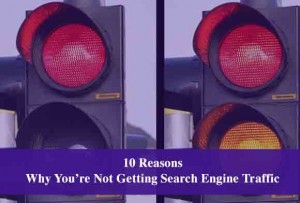
How often should I blog?
Blogging has become an integral part of digital marketing for businesses of all sizes. It’s a powerful tool for driving traffic to your website and building your brand. But, one question that often arises is, how often should you blog for SEO success?
Is there a magic number or a formula that can guarantee success? The truth is, there is no one-size-fits-all answer to this question. The frequency of your blog posts depends on various factors, including your business goals, target audience, and the type of content you produce. In this ultimate guide, we’ll explore the importance of blogging for SEO, the benefits of regular blogging, and the ideal frequency for publishing blog posts. We’ll also provide some tips and tricks to help you create high-quality blog content that will engage your readers and boost your search engine ranking. So, sit back, grab a cup of coffee, and let’s dive into the world of blogging for SEO success!
The Importance of Blogging for SEO
When it comes to SEO, content is king. Your website’s ranking on search engines like Google is heavily influenced by the quality and relevance of your content. That’s where blogging comes in. By regularly publishing blog posts that are informative, engaging, and relevant to your target audience, you can boost your website’s search engine ranking and drive more traffic to your site.
Blogging also helps you to establish your brand as an authority in your industry. When you share valuable insights, tips, and information with your audience, they begin to see you as an expert in your field. This can lead to increased trust and credibility, which can ultimately lead to more conversions and sales.
Finally, blogging is a great way to keep your website fresh and up-to-date. Search engines love websites that are regularly updated with new content. By regularly publishing blog posts, you signal to search engines that your website is active and relevant. This can help to improve your search engine ranking and attract more traffic to your site.
Now that we’ve established the importance of blogging for SEO, let’s dive into the question of how often you should blog. The truth is, there is no one-size-fits-all answer to this question. The frequency of your blog posts depends on several factors, including your business goals, target audience, and the type of content you produce.
For some businesses, publishing blog posts once a week may be sufficient. For others, publishing multiple blog posts per day may be necessary. Ultimately, the key is to find a frequency that works for your business and your audience.
Why I now prefer updating my old content to posting new blog posts
You put a lot of time writing your blog posts and not all, but many are your bread and butter for getting traffic on your website! These top ranking blog posts slowly lose their appeal in google search results.
Perhaps you’ve had a blog post that was getting a thousand views a day from google search results, but now it only receives less than thirty! You can refreshen these blog posts and make them great again!
It’s actually easier than thinking 🤔 of new content for a new blog post.
A word from the wise. Make sure you’re not bogging the same content.
Beware of keyword cannibalization!
What’s keyword cannibalization? When you’re writing multiple blog posts/pages that are competing against each other. If you have too many pages that are cannibalized, it will slowly poison your website. Google does not know what to rank and your site gets “watered down” for the authority of the topic. I had a client that hired someone to blog for their website and after years of duplicate content, the entire website fell from search rankings from the first page to the fifth etc. I took a look at his site and saw that the person that was blogging for them was lazy and just copying old posts from years ago and publishing them as new. Very sneaky, lazy, and unethical! However, the client confronted the blogger and she promised to stop duplicating old content. I checked on the site in the near future and the blogger was still doing it!
Related Post: How to Update and Refresh Meta Titles and Descriptions FAST
Besides, the blog posts that were getting a lot of traffic were from posts you put a lot of effort into and probably enjoyed writing,
Factors to Consider When Determining Blog Frequency
When determining how often to blog, there are several factors you should consider:
Business Goals
What are your business goals? Are you looking to drive more traffic to your website? Generate leads? Increase sales? Your blogging frequency should align with your business goals. If your goal is to drive more traffic to your website, you may need to publish more blog posts than if your goal is to generate leads.
Target Audience
Who is your target audience? What are their interests and needs? How often do they consume content? Your blogging frequency should align with the preferences and needs of your target audience. If your target audience is highly engaged and consumes a lot of content, you may need to publish more blog posts than if your target audience is less engaged.
Type of Content
What type of content do you produce? Some types of content, such as news and current events, may require more frequent updates than evergreen content. Your blogging frequency should align with the type of content you produce.
The Benefits of Consistent Blogging
Regardless of how often you choose to blog, the key is to be consistent. Consistent blogging has several benefits:
Improved Search Engine Ranking
As we’ve already established, search engines love websites that are regularly updated with fresh content. By consistently publishing blog posts, you can improve your search engine ranking and attract more traffic to your site.
Increased Engagement
Consistent blogging also helps to increase engagement with your audience. When your audience knows that they can expect new content from you on a regular basis, they are more likely to engage with your brand and share your content with others.
Establishing Your Brand
Consistent blogging also helps you to establish your brand as an authority in your industry. When you consistently share valuable insights, tips, and information with your audience, they begin to see you as an expert in your field. This can lead to increased trust and credibility, which can ultimately lead to more conversions and sales.
How to Create a Blog Schedule
Now that you understand the importance of consistent blogging, let’s discuss how to create a blog schedule. Here are some steps you can take to create a blog schedule that works for your business:
Set Your Goals
The first step in creating a blog schedule is to set your goals. What do you hope to achieve through blogging? Is it increased traffic to your site? More leads? More sales? Once you’ve identified your goals, you can work backwards to determine how often you need to publish blog posts to achieve those goals.
Determine Your Frequency
Based on your goals and the factors we discussed earlier, determine how often you need to publish blog posts. Be realistic, and consider your resources and bandwidth. It’s better to publish fewer high-quality blog posts than to publish more low-quality posts.
Create a Content Calendar
Once you’ve determined your blogging frequency, create a content calendar. This should outline the topics and titles of your upcoming blog posts, as well as the expected publish date. A content calendar can help you stay organized and ensure that you’re consistently publishing high-quality content.
Strategies for Maintaining a Consistent Blogging Schedule
Maintaining a consistent blogging schedule can be challenging, especially if you’re a small business with limited resources. Here are some strategies you can use to maintain a consistent blogging schedule:
Outsource Your Content Creation
Consider outsourcing your content creation to a professional copywriter or content marketer. This can help to ensure that you’re consistently publishing high-quality content, without overburdening your in-house team.
Repurpose Your Content
Repurposing your existing content can help to save time and ensure that you’re consistently publishing new content. For example, you can turn a blog post into a video, infographic, or social media post.
Batch Your Content Creation
Batching your content creation can help to save time and ensure that you’re consistently publishing new content. Set aside a block of time each week or month to create several blog posts at once.
Tips for Creating High-Quality Blog Content
Regardless of how often you choose to blog, the key is to create high-quality content that engages your audience and boosts your search engine ranking. Here are some tips for creating high-quality blog content:
Know Your Audience
Before you start writing, make sure you understand your target audience. What are their pain points? What questions do they have? What topics are they interested in? Use this information to create content that is relevant and valuable to your audience.
Use Keywords
Using keywords in your blog posts can help to improve your search engine ranking. Make sure to use keywords in your post title, meta description, and throughout your post.
Write High-Quality Content
When writing blog posts, focus on creating high-quality content that is informative, engaging, and well-written. Use subheadings, bullet points, and images to break up text and make your content more readable.
Use a Call to Action
Include a call to action in each blog post, encouraging your readers to take a specific action, such as signing up for your newsletter or downloading a free resource.
Tracking and Measuring the Success of Your Blogging Efforts
Finally, it’s important to track and measure the success of your blogging efforts. Use tools like Google Analytics to track your website traffic, bounce rate, and time on site. Monitor your search engine ranking for relevant keywords. Use social media analytics to track engagement with your content. Use this information to refine your blogging strategy and improve your results.
Here’s my analogy of blog freshness
Did you know your blog freshness and SEO go hand in hand?
You need lots of great high quality content and it needs to be pruned like a rosebush 🌹 by updating the content, adding new information, not just creating new blog posts.
Don’t let your rosebush become overgrown and uncared for 🥀 .
(Did you like my analogy? Hopefully if you do have rosebushes and a green thumb, you go out and tackle that chore today too. – wear gloves🧤)
If you want to drive traffic to your site I’ll tell you the trick for combining blogging frequency for SEO benefits. (below) 😃

It’s true, blog posts that rank well in Google have these five traits in common:
- Blog updated often
- High-quality content
- Sharable content
- Fast loading
- Mobile friendly
- In-depth content
- Great user experience
If your blog has all 7 of these characteristics, your blog is going to be booming with traffic! Unfortunately, these 7 traits take a lot of work to make happen.
RELATED POST How to Rank Higher on Yelp FREE
Just getting “into the mood for blogging” can sometimes be your biggest obstacle!
Just dive in there 🏊♀️ already!
Content to add to old blog posts:
Just adding new content is great. 👍 Adding updated content that’s newsworthy is even better! The recommendations below not only update your content but also enrich it for a better user experience. I recommend you add some of the following that may apply to your blog post or page:
- Images – maybe an update on your progress using a product
- FAQ Schema – Adding new related questions with answers
- In-depth content – Naturally sprinkle in related keywords
- Videos – Embed your Youtube Videos into the related content
- Add a story – If appropriate write why you wrote this post
- Add related links to higher authority sources
- Add bullet points – such as what you’re reading 😉
- Add H2, H3, H4, tags to break up your text and add readability
- Freshen up the Meta description
Related: Free WordPress Plug-ins to Speed up your Blog
You need to blog as often as you can (keeping quality in mind)
Don’t blog for the sake of having a new post
As a matter of fact, STOP publishing short blog posts. Google calls short blog posts “thin content”. There’s not much text for google to “grab on to” and analyze. Adding more text creates a more in-depth blog post, making you look like an expert! Not only that, but your content also becomes more trustworthy too!
When someone finds your blog post that answers their question and many more related questions, they may actually bookmark and share your page.
If your blog post does not have all five traits, you’re just going to be wasting your time and your dedicated reader’s time. Your blog post most likely won’t rank well in google either.
When you take the time to write a new blog post, you want to make sure it lands on google’s first page. Taking your time to write a well-written blog post that someone will actually learn something from and want to share – that’s your best bet. If you can make this happen, run wild and update daily! If you can’t, take your time with your blog post, even work on it throughout the week to develop the blog post into that high-quality slam dunk.

Related: How to Add SEO to your Blog Post
The trick for combining frequent blog post updates For SEO benefits
It can be overwhelming cranking out a fresh new blog post every day, so don’t! Just rewrite/update the old ones. I have some tips on how you can combine a frequent blog post strategy for maximum SEO benefits.
- Blog about one main keyword and naturally add long-tail keywords – Let your blog post have one specific question and answer it from all aspects. This helps you concentrate on one topic rather than getting overwhelmed about sub topics.
- Link to related content in your blog post – If you have a blog post about “How to use instagram for your local business” write another blog post “10 Creative ways how to use instagram for your business.” Now link these blog posts together and you’re cooking with fire!
- Go “in depth” on one topic – As you see on this blog I have many posts about instagram, this casts a wider net for SEO. The more content I have about the topic, gives me my website authoritative points for being a social media maven.

Related: 10 Reason’s why you’re not getting Google search engine traffic
Freshness?
Websites that update often, (once a week) sends a ranking factor to Google to come back and crawl your content regularly. This can help your other blog posts gain momentum and boost their ranks. I have also experimented by slightly rewriting an old blog post and republishing it – changing the time stamp. The blog post that was once old was new again and gaining lots of blog traffic like it once did.
Stale content?
Yuck! 🤢 Who left that blog post in the refrigerator for two years?
Ya, it’s kinda like that. Joking. Ok I admit that analogy was lame.
You need to take those blog posts out of the refrigerator and make meals out of them or throw them away (delete them if they’re outdated and not helpful)
Blogs that have not updated in a long time (1 year or more) usually see a decline in blog ranks. However, this is not the case if your content is being shared on social media! If you’re constantly promoting your content, you might even see an increase in traffic.
I hope I helped answer how often you should blog for your business. Remember, the more high quality content you have, the better chances you have receiving organic google traffic to your website. Having a blog that has hundreds of high quality posts also ensures you gain a boost in website traffic. Overall, a good rule of thumb is to publish/update at least one high quality blog post a week.
RELATED POST You Need to Be Collecting Email Addresses
Difference of opinion
There are many set blogs that recommend publishing new posts daily. Sure it seems amazing, but may not fit with your website. If you have a news website such as a health news site, yes you should update often. However, if you’re a small mom and pop donut shop, you’re probably not going to update daily.
“But I don’t have time to be blogging or updating old content.”
Well guess what? I do have the time to update your blog posts… hire me already! (I’m an SEO expert in San Diego.)
RELATED POST 10 Technical Reasons Why You’re Not Getting Search Engine Traffic
BTW. Thanks for reading.
Got questions? Leave me a comment down below!
In conclusion, blogging is an important tool for SEO success. The frequency of your blog posts depends on various factors, including your business goals, target audience, and the type of content you produce. Regardless of how often you choose to blog, the key is to be consistent and create high-quality content that engages your audience and boosts your search engine ranking. By following the tips and strategies outlined in this guide, you can create a successful blogging strategy that helps to drive traffic to your website and build your brand.

